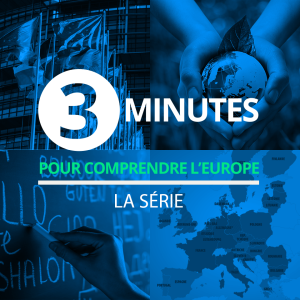Toute l’Europe will launch the “Tweet your MEP” site on September 22nd 2010. The aim is to enable Internet users, particularly young people, to question and discuss issues with MEPs in a simple, direct and immediate way.
Find out more
As a “complex entity, which is not easily explained” , the European Union still struggles to inform citizens about its workings and achievements even though citizens have expressed their desire to know more. And yet “this lack of information is one of the main reasons for people deciding not to vote and being reluctant to trust the EU institutions” .
The statement, asserted in the Lokkegaard report that the MEPs adopted in Strasbourg on September 7th, lists several ways in which European citizens can be better involved in European issues. The report contains a collection of measures that are not just about the media but also about education and policy programmes.
As stated in the report, the problem is not the quantity of information available on the EU (“too much information kills information”) but its quality. Also, there is confusion between informing, which is a one-way process, and communicating, which implies real dialogue between citizens.
Although the “institutional and technological setting has never been better” for the creation of a public space, the ways to benefit from them are not always implemented. The following is an outline of the report’s principal proposals :
Role of governments and political parties
Rather than “[blaming] the EU in the case of negative polls or public opinion on EU matters” , leaders of Member States and European institutions must “assume responsibility” , according to the report.
In order for communication to be based on “genuine dialogue between the general public and policy-makers” , national parliamentarians must get involved in the European decision-making process - the potential for which has been strengthened by the Lisbon Treaty.
Furthermore, political parties “should give European issues a more prominent position in their programmes” , and the role of civil society organisations in the European debate should also be strengthened.
Lastly, each Member State should have a specialised EU affairs office as a “point of reference to whom people can direct their attention on EU matters” .
The Media
The report “takes the view that EU news coverage must be provided by all types of media, in particular the mass media, and must be impartial, factual and independent” . The report “stresses the crucial importance of respecting the media’s freedom and editorial independence at both EU and national level, especially the right of public service radio and television broadcasters to schedule their programmes as they see fit, as their programme autonomy is a fundamental value of the EU and its media landscape and is extremely important in order for a free, open and democratic society to flourish” .
The problem of communicating Europe thus mainly lies in the fact that there is “a wide range of information without any real order of priority” which is “not sufficiently clear, attractive or understandable, in many cases owing to the use of overly technical language that is very off-putting for people who are unfamiliar with European issues” .
One way to address this discrepancy is to emphasise the impact of European debates and decisions on the daily lives of citizens “who see the EU as still being too distant and having too little influence in terms of solving their real problems” . The aim is to “[make] the EU more visible at local level” .
MEPs also understand the importance of extending the linguistic range of Euronews which is “a model of independent television journalism” .
In parallel, the recent fall in the number of accredited journalists in Brussels is seen as “extremely worrying” even if there has been no reduction in online information. MEPs emphasised how necessary it is for European institutions (particularly Parliament and the Commission) to continue to offer training to journalists.
Non professional social media
Social media (“a central Web 2.0 feature”) “foster the dissemination of information and diversity of input and make for a more deliberative democracy” . They are also a means of reaching young people in particular.
Nonetheless, the report considers that these “new media” do not always guarantee as serious content as one might expect and cannot be considered professional media. Consequently, the MEPs recommend the “drawing up a code of ethics applicable to new media” .
Journalists play a crucial role in the reliability of sources and the spread of information “since they alone can bring significant added value to information by using their professionalism, ethics, skill and credibility to make sense of the news” .
Involving young people through school curricula
Stress is placed on integrating the European Union “into all education curricula, focusing on the historical background, purpose and workings of the EU” . In the wider context, courses on journalism and new media should also be considered.
What are the core values of the EU ?
The report ends by reflecting on the basis of European communication : “The new European story” .
“Now it is imperative to define the central elements of the new story of Europe as new generations grow up with the EU as the norm. The challenge lies in defining the core values of the EU. The contribution, engagement and ownership of European citizens is vital in this regard and EU leaders must contribute to this task.”
Find out more
Morten Lokkegaard, project rapporteur - European Parliament
Final report “Journalism and new media - creating a public sphere in Europe” - European Parliament
Draft report - European Parliament




 Actualité
Actualité 


 Questions-Réponses
Questions-Réponses  Infographies
Infographies  Revue de presse
Revue de presse  Podcasts
Podcasts  Tribunes
Tribunes